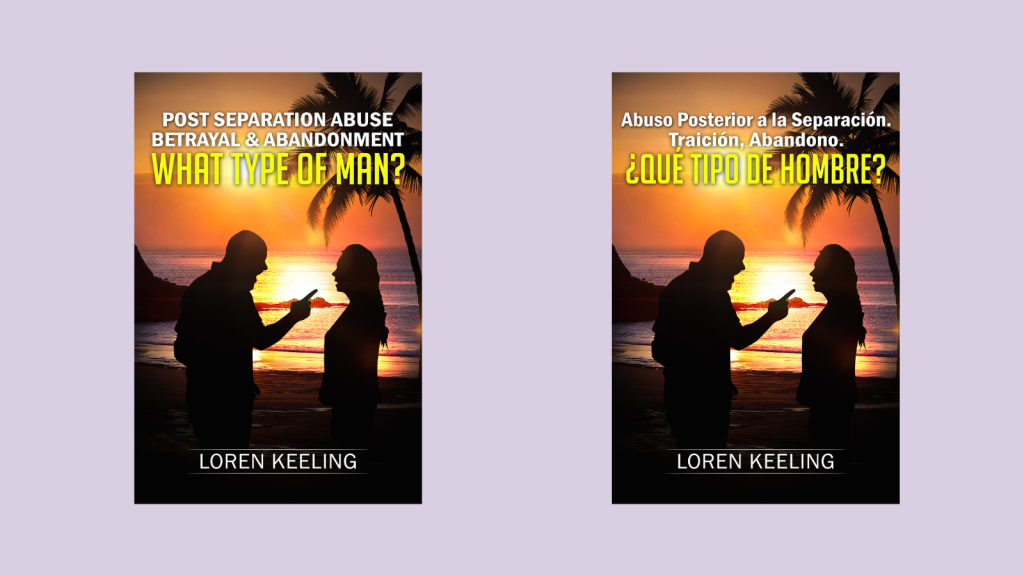6 Surprising Legal Truths About Your Financial Rights After a Breakup
Many long-term, unmarried couples building a life together in Spain operate under a dangerous assumption: that after enough time, their living together relationship legally transforms into a “common-law marriage,” granting them financial protections similar to those of a married couple. They contribute to a shared home, raise a family, and support each other’s careers, believing that the law will recognise their commitment if they ever separate.
This belief is a myth. In Spain, there is no automatic transition from cohabitation to a marriage-like status. The legal reality governing the financial separation of unmarried partners (parejas de hecho) is often counterintuitive and can come as a harsh surprise. This article reveals the six fundamental legal truths you need to understand to protect your financial future after a breakup.
1. Your Long-Term Relationship Doesn’t Automatically Grant You Marriage-Like Rights
This is the most critical takeaway: Spanish law makes a clear and deliberate distinction between marriage and unmarried cohabitation. The Supreme Court has consistently refused to apply the financial rules of marriage—such as spousal support (pensión compensatoria) or the automatic division of assets—to unmarried couples simply because they lived together for a long time.
This isn’t an oversight; it’s a core legal principle based on the “autonomy of will” (Article 10 of the Spanish Constitution). The courts reason that by actively choosing not to marry, partners have also chosen to remain outside of the specific legal and financial framework that marriage provides. The law respects their freedom to have made that choice, for whatever reason. Consequently, you cannot live for years as an unmarried partner and then, upon separation, ask a judge to apply the rules you opted out of.
The Spanish Supreme Court has repeatedly stated that individuals who freely choose to live together without marrying cannot later ask the courts to impose the rights and obligations of a marriage they deliberately avoided. The choice not to marry is respected as a fundamental freedom.
2. A Legal Postcode Lottery:
Your Rights Change Drastically Depending on Where You Live in Spain
Spain’s legal system is decentralised, and family law is one of the areas where this has a profound impact. Your ability to claim financial compensation after a breakup can depend entirely on your address, creating a “postcode lottery” for legal protection.
To understand the stakes, consider the tale of two partners in identical situations. Maria lives in Madrid, and Anna lives in Barcelona. Both have spent 15 years as stay-at-home partners, raising children and managing the household while their partners built successful careers and acquired property in their own names. When both relationships end, their legal paths diverge dramatically.
- Maria in Madrid (a Derecho Común region): Her only legal tool for a financial claim is the doctrine of “Unjust Enrichment.” She faces a difficult uphill battle to prove four strict legal requirements, including demonstrating her specific economic impoverishment and its direct causal link to her partner’s enrichment.
- Anna in Barcelona (a Derecho Foral region): She can rely on Catalonia’s Civil Code (Art. 234-9 CCCat), which provides a specific statutory right to “Compensation for Domestic Work.” Her path is more direct, as the law explicitly recognizes her contribution to the home as a basis for a financial settlement.
The implication is stark: two people with identical life stories can face drastically different financial outcomes upon separation, all because of their postcode.
3. The “Unjust Enrichment” Claim:
It’s Not About Fairness, It’s About Proving Quantifiable Loss and Gain
In most of Spain (Derecho Común regions), the only legal avenue for a partner to claim a share of assets held in the other’s name is the doctrine of Unjust Enrichment (Enriquecimiento Injusto). While Unjust Enrichment is the primary recourse today, courts have, in rare cases, also found that a couple’s actions—like pooling all income into a single account to acquire assets—created a “tacit community of goods,” though this is very difficult to prove. For most, the doctrine is not a general appeal to fairness; it is a strict legal test with four mandatory requirements. You must prove all of them.
- An increase in one partner’s wealth: The property-owning partner must have experienced a quantifiable financial gain.
- A corresponding impoverishment of the other partner: The claimant must prove they suffered a specific, measurable economic loss.
- A direct causal link: You must prove that your impoverishment directly caused your partner’s enrichment.
- A lack of any legal cause: There can be no other legal justification (like a contract or a gift) for the enrichment.
This creates a very high legal hurdle, especially for a partner whose primary contribution was unremunerated domestic work or raising children. The Supreme Court ruling STS 17/2018 is a perfect example. In that case, a woman’s claim for compensation failed because she could not provide concrete proof that she had suffered a specific economic loss or had abandoned a tangible career path for the relationship. Simply living together for 16 years and dedicating herself to the family was not enough. The court made it clear: long-term cohabitation or a significant disparity in earnings does not, by itself, satisfy the strict requirements of Unjust Enrichment.
4. Housework Has a Price Tag:
How Spanish Courts Value Domestic Labour
While proving an Unjust Enrichment claim is difficult, when it succeeds—or when compensation is awarded under a regional law like Catalonia’s—how do courts calculate the amount? They don’t guess. They use a clear methodology to put a price tag on years of unremunerated domestic labour.
The primary benchmark used by Spanish courts is the Minimum Interprofessional Salary (SMI) for each year of the cohabitation. By calculating the value of the SMI over the period of exclusive dedication to the household, the court transforms domestic contributions into a concrete, quantifiable financial figure.
A ruling from a court in Vélez-Málaga (Andalusia) provides a powerful illustration of this methodology. It’s important to note that this specific case involved a married couple under a separation of goods regime, where the claim was based on a Civil Code article applicable to marriages (Art. 1438). However, the valuation principle is the same one applied in successful claims by unmarried partners. The court awarded the woman €204,624.86 as compensation for 25 years of exclusive dedication to the home and family. The amount was calculated precisely by applying the historical SMI for each year between 1995 and 2020. This shows how, when legally recognised, domestic labour can be translated into a significant financial settlement.
5. Your Children’s Rights Are Always Protected. Withholding Support Can Be “Economic Violence”
While the financial rights between unmarried partners are limited, the rights of their children are absolute and identical to those of children born to married parents. Spanish law makes no distinction based on the parents’ marital status. Key protections include:
- Shared parental authority (patria potestad)
- The right to receive child support (pensión de alimentos)
- Automatic inheritance rights
Beyond these fundamental protections, some regional laws have introduced a powerful concept. The Catalan Law 5/2008 on the right of women to eliminate violence against women was among the first in Spain to explicitly define and recognise “economic violence” as a specific form of gender-based violence. This definition includes the intentional and unjustified deprivation of resources, such as the repeated and unjustified non-payment of court-ordered child support.
This reframes the failure to pay from a simple civil debt into a recognised form of abuse. It acknowledges that withholding essential financial resources is often used as a tool to perpetuate control, inflict psychological suffering, and maintain the economic dependency of the mother, harming both her and the children.
The limitations of Spanish law concerning violence against women, specifically focusing on economic violence as defined by Law 5/2008, as amended by Law 17/2020. While national laws for comprehensive protection measures under 1/2004 are acknowledged as covering all of Spain and protecting all women regardless of marital status, the author raises concerns about how property laws and precarious eviction laws disadvantage women in unregistered cohabiting relationships post-separation. It includes excerpts from a book by Loren Keeling, “Post Separation Abuse. Betrayal and Abandonment. What Type of Man?”, which highlights legal gaps and the trauma of psychological and economic abuse when an unmarried relationship ends.
6. The Only Guaranteed Safety Net Is One You Build Yourself:
The Power of a Cohabitation Agreement
Given the legal complexities and uncertainties, what is the one guaranteed way for unmarried partners to protect their financial interests? A formal, written agreement (pacto or convenio regulador). However, as seen in the video on the subject of economic violence, a formal written agreement might still not be honoured by an ex-partner who is a dominant, controlling high high-conflict personality.
The same legal principle that limits your rights without an agreement—the “autonomy of will”—is also your most powerful tool. The courts will prioritise and enforce a clear agreement made freely between two partners. If you want to establish rules for how property is owned, how shared expenses are paid, and, most importantly, what happens financially if you break up, you must put it in writing.
This isn’t about a lack of trust; it’s about creating a foundation of clarity and fairness for your partnership. A cohabitation agreement is a sign of a mature, responsible relationship where both partners agree on a fair outcome in advance, rather than leaving their future to a postcode lottery and a difficult legal battle.
Conclusion: Plan for the Best, But Protect Yourself from the Worst
The legal landscape for unmarried couples in Spain is clear: assumptions are dangerous. Believing that time and commitment will automatically grant you marriage-like financial rights is a myth that can lead to devastating economic consequences. The only way to ensure financial fairness and security upon the breakdown of a cohabitation is through proactive, informed planning.
Your relationship is built on trust and love, but is it also built on a foundation of legal and financial clarity? What steps can you take today to ensure both partners are protected, no matter what the future holds?

Order Your Copy Now Available Worldwide in English and Spanish


